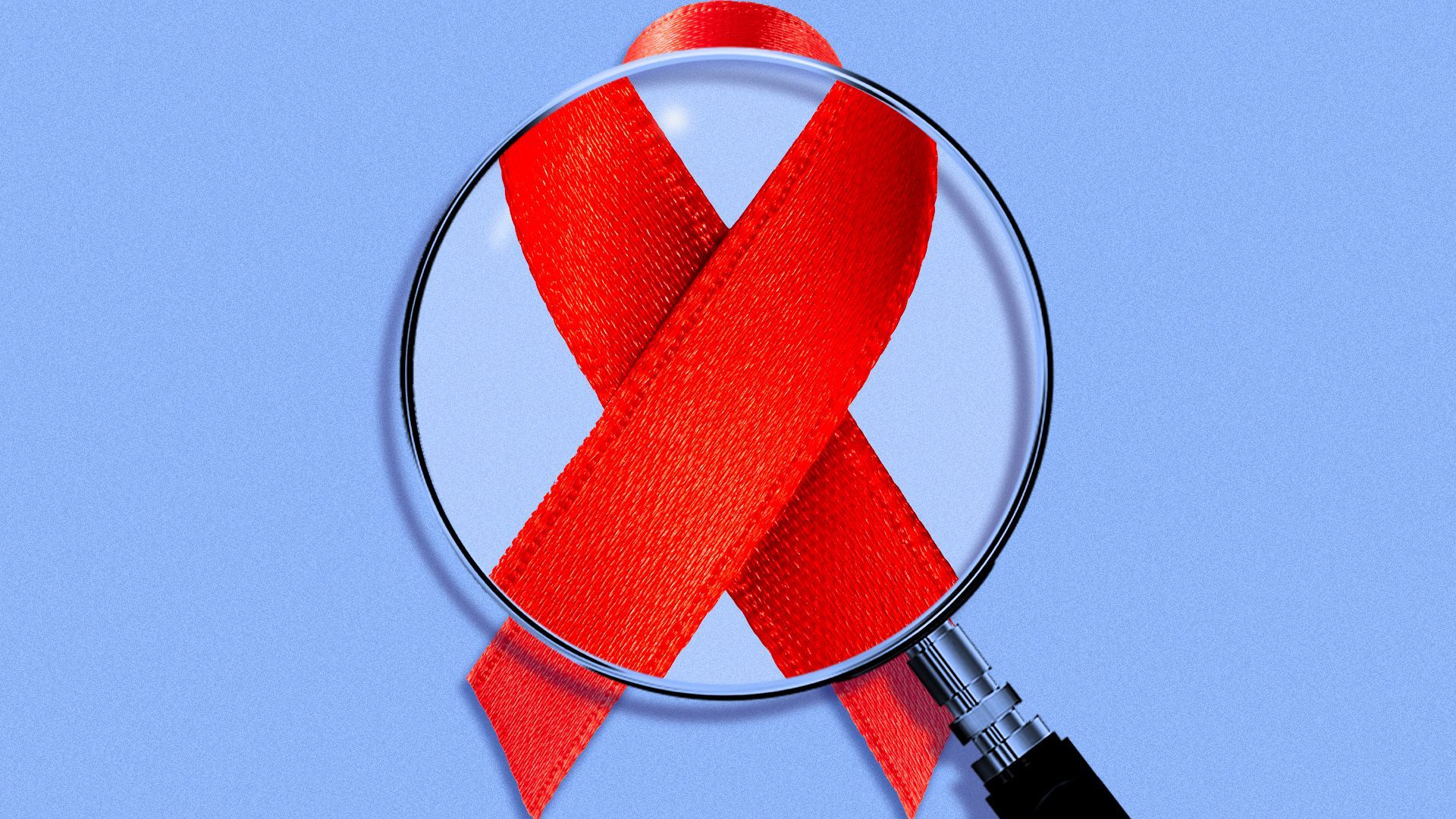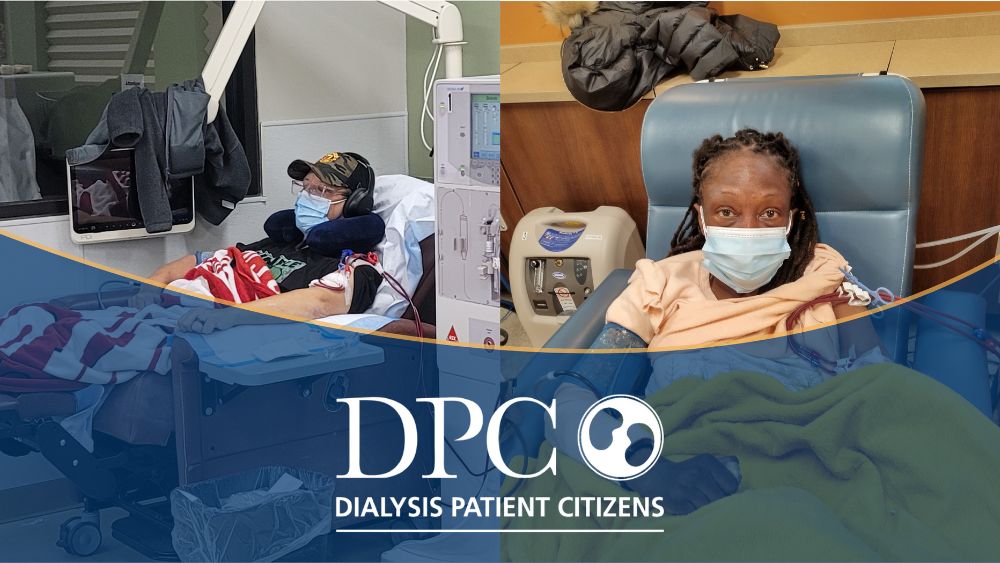| |
| |
| |
| Presented By Dialysis Patient Citizens |
| |
| Axios Vitals |
| By Tina Reed · Dec 14, 2022 |
| 🐪 Congrats, Vitals readers. We've made it halfway through the week and almost all the way through the year. Today's newsletter is 918 words or a 3½-minute read. Don't forget to tune in! Join Axios' Caitlin Owens and Victoria Knight today at 12:30pm ET for a virtual event looking at the future of telehealth policy after the midterms and heading into 2023. Register here to attend. |
| |
| |
| 1 big thing: Biden admin extends pandemic-era flexibilities on opioid use treatments |
 |
|
| Illustration: Annelise Capossela/Axios |
| |
| The Biden administration is moving to make permanent the pandemic rules that allowed take-home drugs to help fight opioid addiction, Axios' Sabrina Moreno and I write. Why it matters: The proposed rule from HHS would make it easier for patients with opioid use disorder to access drugs like methadone for home use and for providers to prescribe them via telehealth for patients with opioid use disorder. - Before the COVID-era changes, federal regulations often required those seeking treatment to go in-person daily to receive medication, according to the Pew Charitable Trusts.
The big picture: Tuesday's moves come amid a broader administration push to address the opioid crisis — and while the Food and Drug Administration is reviewing whether to make a nasal spray for reversing opioid overdoses available without a prescription. - More than 100,000 people in the U.S. died from overdoses last year, according to provisional data released earlier this year by the CDC. That's more than any year on record.
Catch up quick: The Substance Abuse and Mental Health Services Administration, or SAMHSA, at the outset of the pandemic, relaxed restrictions on take-home methadone — and later buprenorphine in 2021 — letting clinics offer more doses to patients deemed able to safely handle the medication. - In this respect, the pandemic provided a test case to demonstrate that loosening regulations on methadone was safe for patients and communities, per Undark Magazine.
- The Health and Human Services Department said this month that since last fall, the number of health care providers with waivers to prescribe buprenorphine for opioid use disorder increased by 19% and that naloxone prescriptions filled in pharmacies has increased by 37%.
What they're saying: "Enabling creative, effective strategies, such as telemedicine, is critical to reducing the number of overdose deaths in our country, particularly in underserved areas, and ending the overdose crisis," a group of attorneys general from 44 states and the District of Columbia said in a letter last month calling for the extension. Go deeper. |
    |
| |
| |
| 2. Task force gives HIV treatment drugs an "A" |
 |
|
| Illustration: Sarah Grillo/Axios |
| |
| The U.S. Preventive Services Task Force on Tuesday recommended prescribing medications that prevent HIV to adolescents and adults who are at increased risk for acquiring the virus, Axios' Arielle Dreher writes. Driving the news: A draft document to give pre-exposure prophylaxis, or PrEP, the task force's highest recommendation comes as compulsory coverage for the treatment, as well as the task force's very existence, are both being challenged in federal court. The intrigue: Earlier this year, U.S. District Judge Reed O'Connor struck down an Affordable Care Act requirement that employers must cover the treatment. - The judge — who has previously ruled against the ACA — also questioned constitutionality of the task force and its recommendations.
What they're saying: Advocates for affordable HIV treatment applauded the task force's draft recommendation on Tuesday. - "We are hearing many complaints by people who are still being charged cost-sharing for oral PrEP and its associated services," said Carl Schmid, executive director of the HIV+Hepatitis Policy Institute, in a statement. "People seeking PrEP are facing too many barriers to access and we need state and federal regulators to take the necessary steps to correct these problems."
|
    |
| |
| |
| 3. Maternal mortality and abortion bans |
 |
|
| Illustration: Gabriella Turrisi/Axios |
| |
| The Supreme Court's Dobbs decision has been "devastating" to maternal health and widened gaps in care as the U.S. grapples with the highest maternal mortality rate among developed nations, Biden administration officials said Tuesday, Axios' Oriana Gonzalez writes. Driving the news: Maternal death rates in 2020 were 62% higher in states that ban or restrict abortion than in states where the procedure is still accessible, according to a report from the Commonwealth Fund released on Wednesday. - Women of reproductive age in restrictive states have less access to affordable health plans and less access to maternity health care providers. These states had a 32% lower ratio of OB-GYNs to births and a 59% lower ratio of certified midwives to births.
By the numbers: Researchers from the University of Colorado found that a nationwide federal abortion ban could make the maternal death rate increase by 24%. What we're watching: Some House Democrats are pushing for a package of maternal health bills, known as the Momnibus, to be included in Congress' end-of-year spending package. |
    |
| |
| |
| A message from Dialysis Patient Citizens |
| Fight for dialysis patients |
| |
 |
| |
| Federal protections give dialysis patients the right to maintain their private, employer insurance coverage for up to 30 months. The challenge: A recent U.S. Supreme Court decision now allows health plans to impose restrictive terms for dialysis patients and lower benefits. Help take action. |
| |
| |
| 4. Report details harassment of providers |
 |
|
| Illustration: Allie Carl/Axios |
| |
| Anti-transgender campaigns resulted in the online harassment of 24 different hospitals and health care providers in 21 states over a recent four-month period, according to a report from Human Rights Campaign shared first with Axios' Ina Fried. The big picture: Despite being uniformly recommended by major medical organizations including the American Medical Association and the American Academy of Pediatrics, gender-affirming care has been under fire from a variety of directions, including via legislative attacks and online threats. - "This report confirms what we have suspected for some time: these dangerous accounts are playing a major role in causing harm to health care providers and patients," Kelley Robinson, president of the Human Rights Campaign, in a statement to Axios.
- The AMA and other groups have called on the Justice Department to investigate threats to health care providers.
|
    |
| |
| |
| 5. Catch up quick |
| 👀 Florida Gov. Ron DeSantis targeted COVID vaccine manufacturers and the CDC in his latest anti-vaccine moves. (CNN) 🚑 Half of ambulance rides yield surprise medical bills. Those bills are next up in the move toward reform. (Washington Post) (USA Today) 📲 Dozens of telehealth startups sent sensitive health information to Big Tech companies. (STAT) 👉 Long COVID can be deadly, new CDC data shows. (Axios) |
    |
| |
| |
| A message from Dialysis Patient Citizens |
| Dialysis patients are speaking out |
| |
 |
| |
| Dialysis patients are at risk of losing their insurance coverage — but there are steps you can take to help. Why it's important: Kidney disease requires hours of treatment every week; patients deserve to make the best choice for their health coverage. Hear their stories. |
| |
| 🗣 Psst! Hill staffers: Axios Pro: Policy is our radical new approach to policy reporting. Secure heavily discounted pricing for your office today. Thanks for reading, and thanks to senior editor Adriel Bettelheim and senior copy editor Bryan McBournie for the edits. Did someone forward this email to you? Here's how to sign up. |
 | | Your personal policy analyst is here. | | |








No comments:
Post a Comment